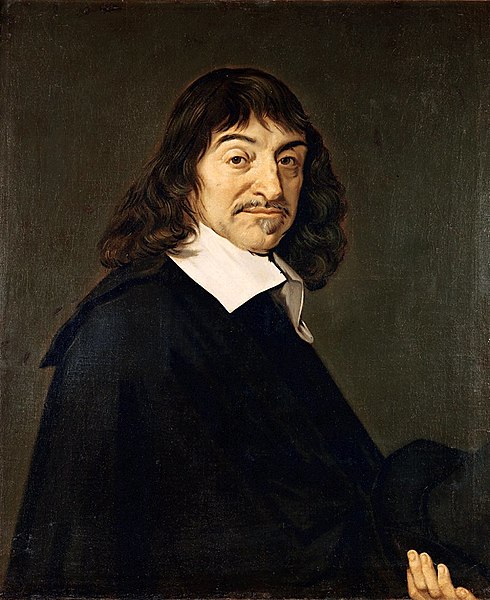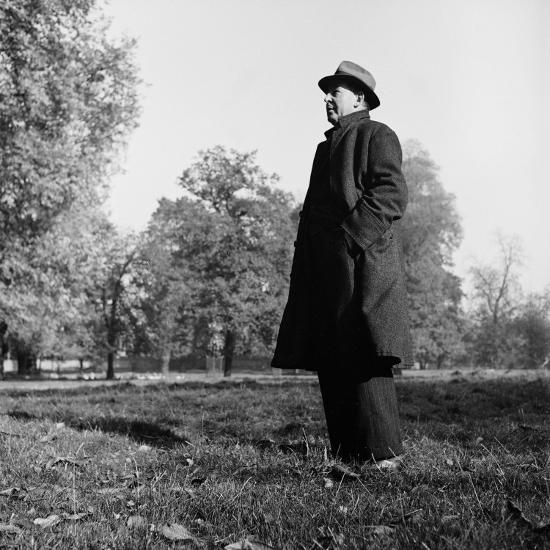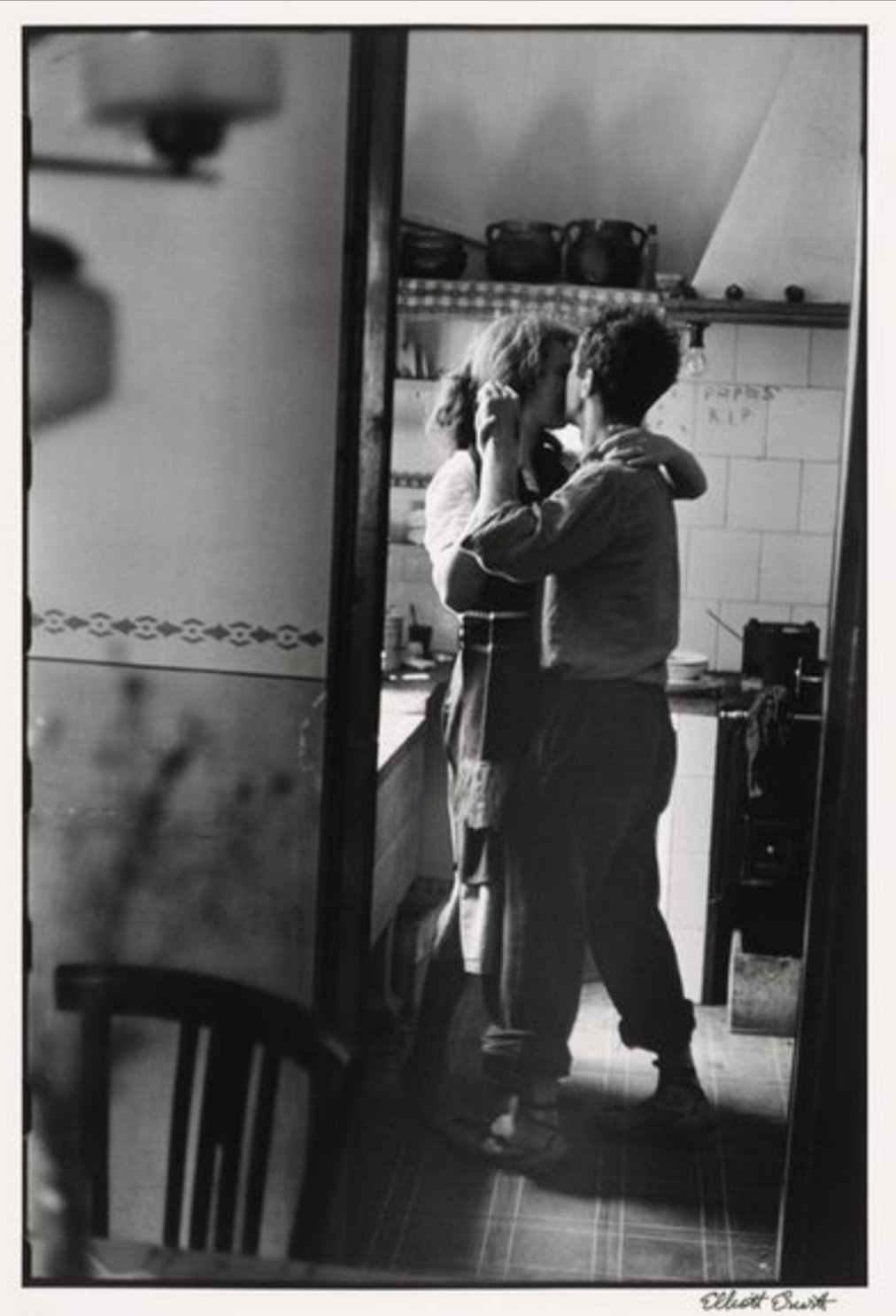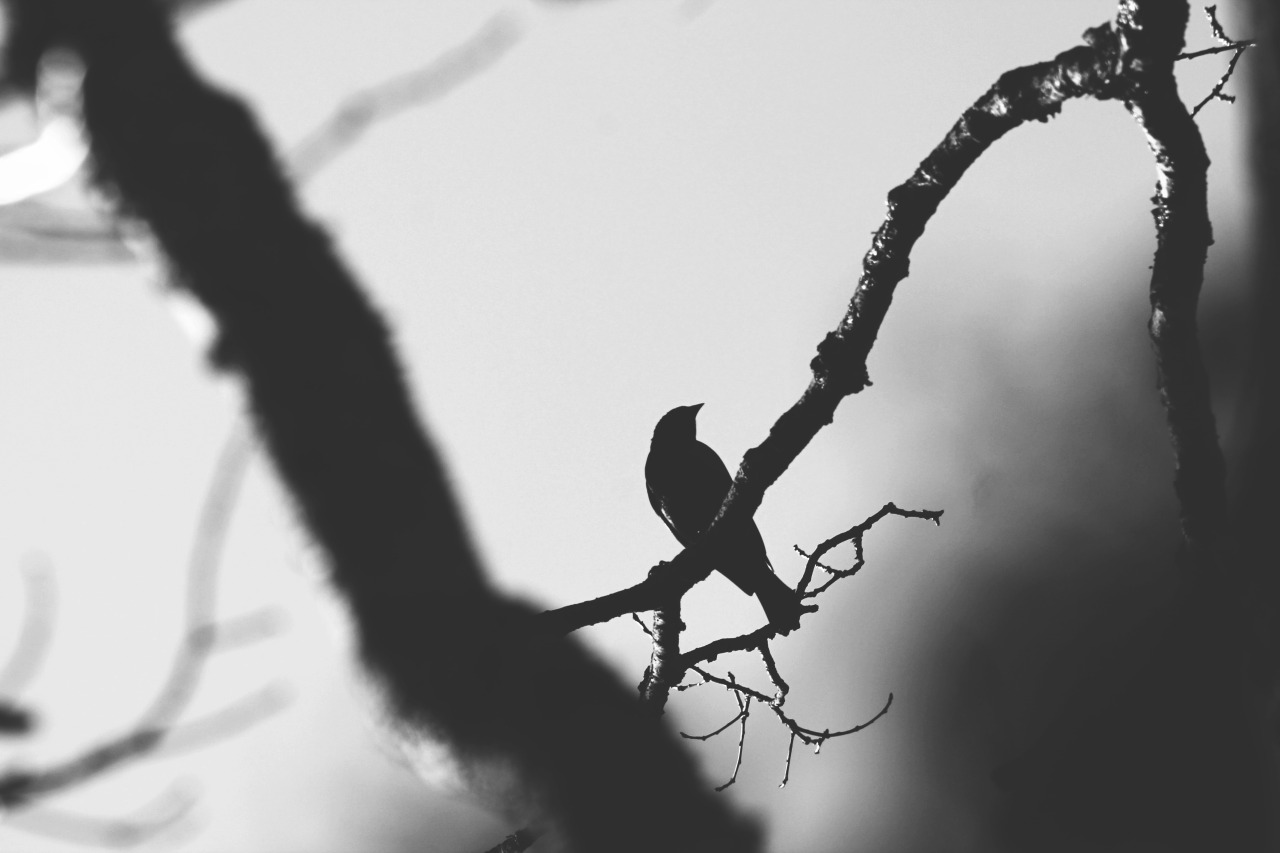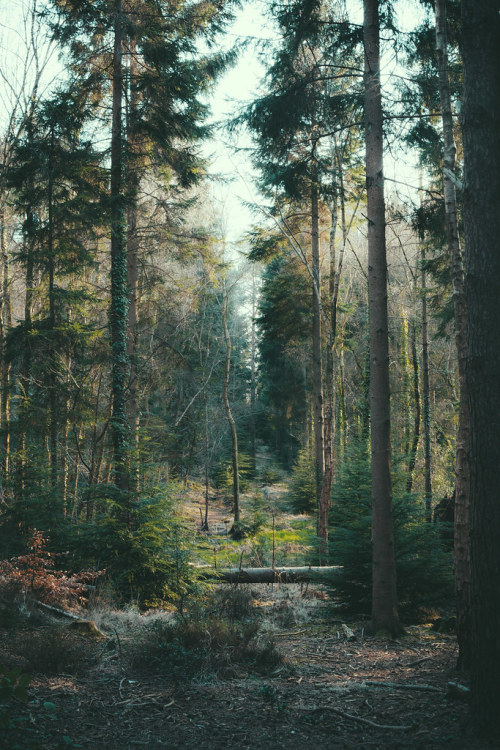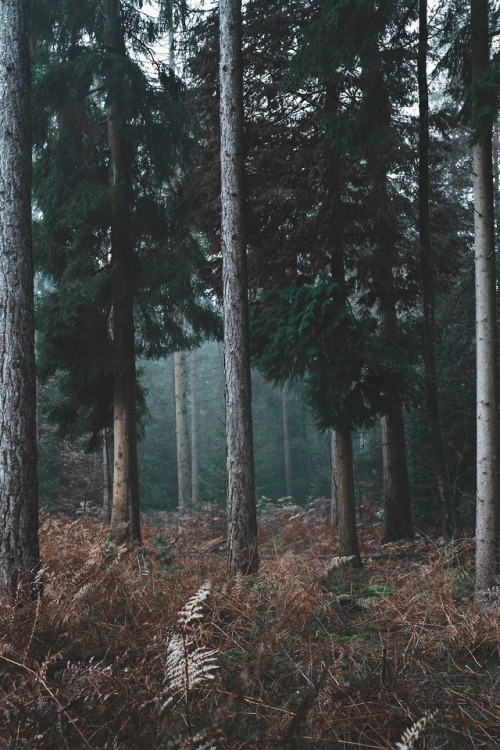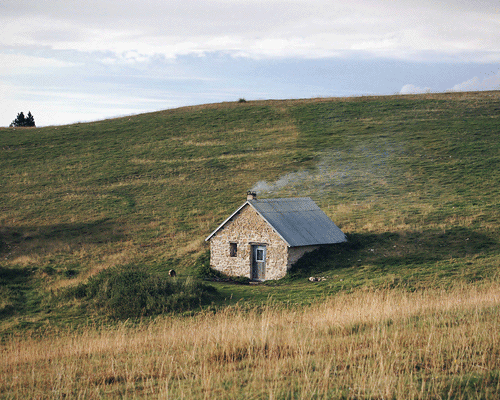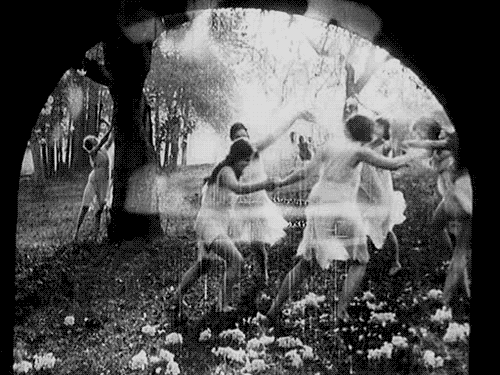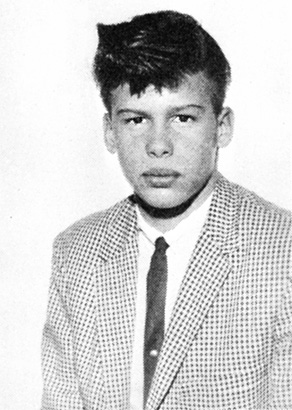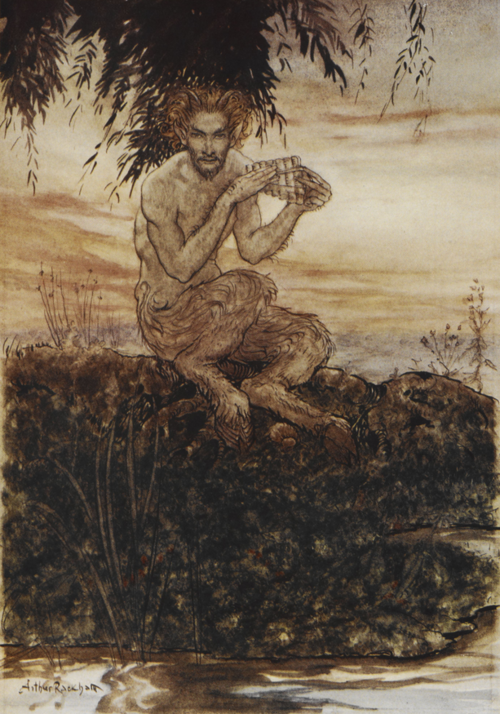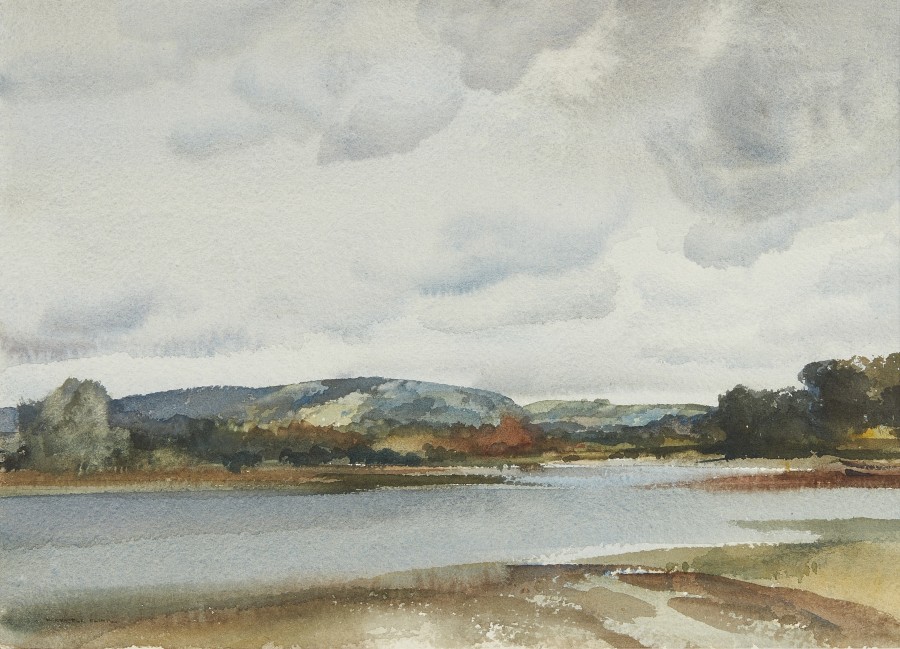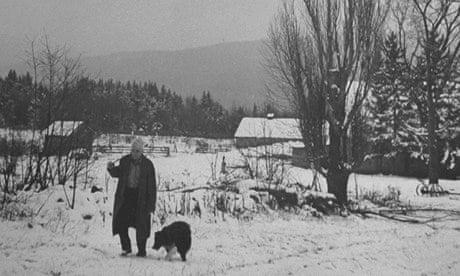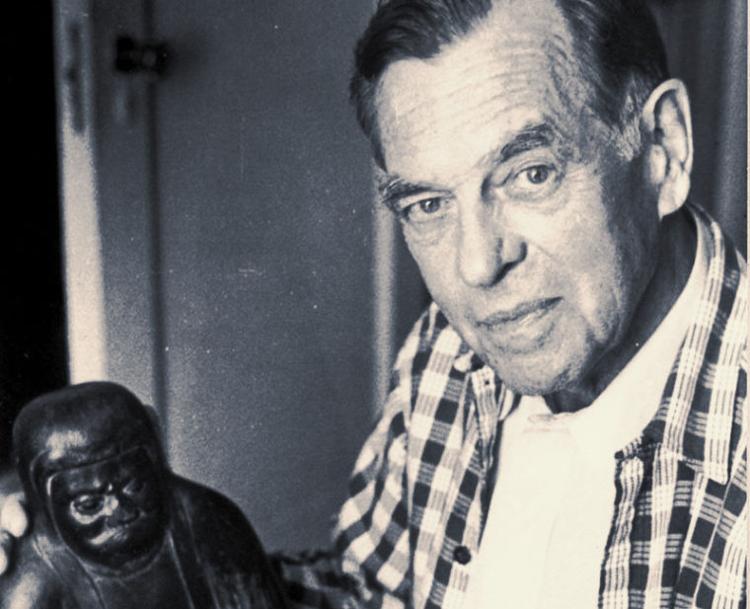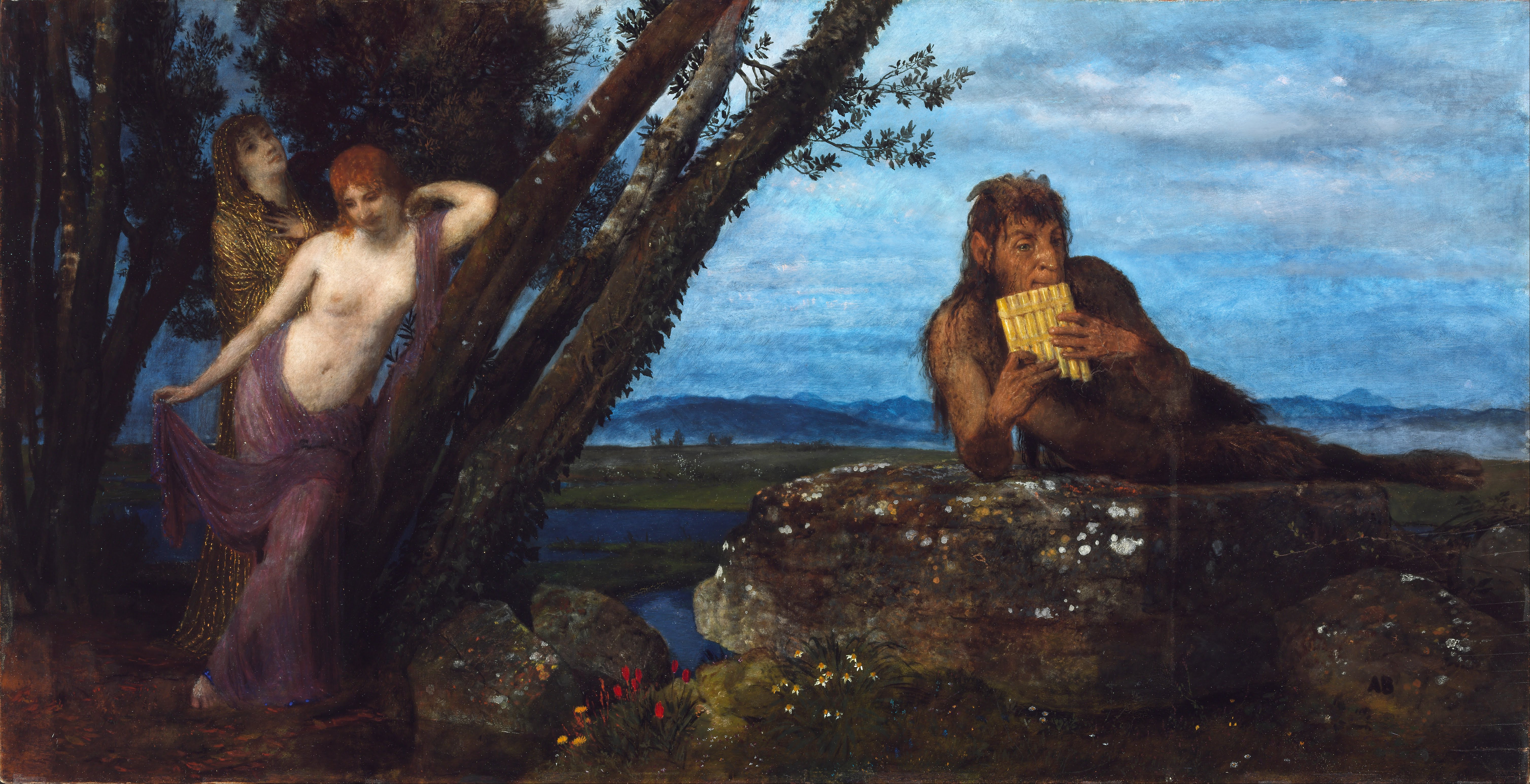31 March 2020
Violation.
When one deals with deep uncertainty, both governance and precaution require us to hedge for the worst. While risk-taking is a business that is left to individuals, collective safety and systemic risk are the business of the state. Failing that mandate of prudence by gambling with the lives of citizens is a professional wrongdoing that extends beyond academic mistake; it is a violation of the ethics of governing.
30 March 2020
Stolen.
van Gogh, Spring Garden, 1884
AMSTERDAM (Reuters) - Thieves stole a painting by Dutch master Vincent van Gogh overnight from the Netherlands’ Singer Laren Museum, currently closed to the public because of the coronavirus, its director said on Monday.
The painting “Lentetuin”, or “Spring Garden,” which depicts the garden of the rectory at Nuenen and dates to 1884, had been on loan from the Groninger Museum in the Netherlands.
“I am shocked and absolutely livid that this has happened,” Jan Rudolph de Lorm, the director of the Singer Laren Museum, said in a video statement posted on YouTube.
“This splendid and moving artwork by one of our great artists has been stolen, taken from the community,” he said.
CONNECT
The painting “Lentetuin”, or “Spring Garden,” which depicts the garden of the rectory at Nuenen and dates to 1884, had been on loan from the Groninger Museum in the Netherlands.
“I am shocked and absolutely livid that this has happened,” Jan Rudolph de Lorm, the director of the Singer Laren Museum, said in a video statement posted on YouTube.
“This splendid and moving artwork by one of our great artists has been stolen, taken from the community,” he said.
CONNECT
Happy Birthday, van Gogh
van Gogh, Almond Blossoms (detail), 1890
Vincent van Gogh was born on this date in 1853.
What am I in the eyes of most people — a nonentity, an eccentric, or an unpleasant person — somebody who has no position in society and will never have; in short, the lowest of the low. All right, then — even if that were absolutely true, then I should one day like to show by my work what such an eccentric, such a nobody, has in his heart. That is my ambition, based less on resentment than on love in spite of everything, based more on a feeling of serenity than on passion. Though I am often in the depths of misery, there is still calmness, pure harmony and music inside me. I see paintings or drawings in the poorest cottages, in the dirtiest corners. And my mind is driven towards these things with an irresistible momentum. So, if I am worth anything later, I am worth something now. For wheat is wheat, even if people think it is a grass in the beginning.
Vincent van Gogh
The van Gogh episode from Simon Shama's series, Power of Art ...
Vincent van Gogh was born on this date in 1853.
What am I in the eyes of most people — a nonentity, an eccentric, or an unpleasant person — somebody who has no position in society and will never have; in short, the lowest of the low. All right, then — even if that were absolutely true, then I should one day like to show by my work what such an eccentric, such a nobody, has in his heart. That is my ambition, based less on resentment than on love in spite of everything, based more on a feeling of serenity than on passion. Though I am often in the depths of misery, there is still calmness, pure harmony and music inside me. I see paintings or drawings in the poorest cottages, in the dirtiest corners. And my mind is driven towards these things with an irresistible momentum. So, if I am worth anything later, I am worth something now. For wheat is wheat, even if people think it is a grass in the beginning.
Vincent van Gogh
The van Gogh episode from Simon Shama's series, Power of Art ...
29 March 2020
Poets.
We comfort ourselves by reliving memories of protection. Something closed must retain our memories, while leaving them their original value as images. Memories of the outside world will never have the same tonality as those of home and, by recalling these memories, we add to our store of dreams; we are never real historians, but always near poets, and our emotion is perhaps nothing but an expression of a poetry that was lost.
Gaston Bachelard
28 March 2020
Safely.
I am too alone in the world, and not alone enough
to make every minute holy.
I am too tiny in this world, and not tiny enough
just to lie before you like a thing,
shrewd and secretive.
I want my own will, and I want simply to be with my will,
as it goes toward action,
and in the silent, sometimes hardly moving times
when something is coming near,
I want to be with those who know secret things
or else alone.
I want to be a mirror for your whole body,
and I never want to be blind, or to be too old
to hold up your heavy and swaying picture.
I want to unfold.
I don’t want to stay folded anywhere,
because where I am folded, there I am a lie.
And I want my grasp of things
true before you. I want to describe myself
like a painting that I looked at
closely for a long time,
like a saying that I finally understood,
like the pitcher I use every day,
like the face of my mother,
like a ship
that took me safely
through the wildest storm of all.
Rainer Maria Rilke
Greg Brown, "Laughing River"
I reckon where I'm headed
I might need me different clothes --
Way up in Michigan
Where the Laughing River flows ...
I might need me different clothes --
Way up in Michigan
Where the Laughing River flows ...
Hope.
The DARKLING THRUSH
I leant upon a coppice gate
When Frost was spectre-grey,
And Winter's dregs made desolate
The weakening eye of day.
The tangled bine-stems scored the sky
Like strings of broken lyres,
And all mankind that haunted nigh
Had sought their household fires.
The land's sharp features seemed to be
The Century's corpse outleant,
His crypt the cloudy canopy,
The wind his death-lament.
The ancient pulse of germ and birth
Was shrunken hard and dry,
And every spirit upon earth
Seemed fervourless as I.
At once a voice arose among
The bleak twigs overhead
In a full-hearted evensong
Of joy illimited;
An aged thrush, frail, gaunt, and small,
In blast-beruffled plume,
Had chosen thus to fling his soul
Upon the growing gloom.
So little cause for carolings
Of such ecstatic sound
Was written on terrestrial things
Afar or nigh around,
That I could think there trembled through
His happy good-night air
Some blessed Hope, whereof he knew
And I was unaware.
Thomas Hardy
Influence.
Dabos, Thomas Paine, 1792
Reason and Ignorance, the opposites of each other, influence the great bulk of mankind. If either of these can be rendered sufficiently extensive in a country, the machinery of Government goes easily on. Reason obeys itself; and Ignorance submits to whatever is dictated to it.
Thomas Paine, from Rights of Man, 1791
Reason and Ignorance, the opposites of each other, influence the great bulk of mankind. If either of these can be rendered sufficiently extensive in a country, the machinery of Government goes easily on. Reason obeys itself; and Ignorance submits to whatever is dictated to it.
Thomas Paine, from Rights of Man, 1791
Interest.
We are becoming a nation of thieves by trying to live at everyone else’s expense. We have lost our moral mooring and the Church is partially responsible by failing to uphold its beliefs. One of the 10 Commandments says, “Thou shall not steal.” Now I am fairly confident that God did not mean, “Thou shall not steal–unless you get a majority vote” ...
Do-gooders fail to realize that most good is not done in the name of good but done in the name of self-interest. It is not from the benevolence of the butcher, the brewer, or the baker that we expect our dinner, but from their regard to their own interest.
Dr. Walter E. Williams, from American Contempt for Liberty
C-SPAN's In Depth with Dr. Williams ... HERE.
Old.
August 7, 1865
To My Old Master, Colonel P.H. Anderson, Big Spring, Tennessee
Sir:
I got your letter, and was glad to find that you had not forgotten Jourdon, and that you wanted me to come back and live with you again, promising to do better for me than anybody else can. I have often felt uneasy about you. I thought the Yankees would have hung you long before this, for harboring Rebs they found at your house. I suppose they never heard about your going to Colonel Martin’s to kill the Union soldier that was left by his company in their stable. Although you shot at me twice before I left you, I did not want to hear of your being hurt, and am glad you are still living. It would do me good to go back to the dear old home again, and see Miss Mary and Miss Martha and Allen, Esther, Green, and Lee. Give my love to them all, and tell them I hope we will meet in the better world, if not in this. I would have gone back to see you all when I was working in the Nashville Hospital, but one of the neighbors told me that Henry intended to shoot me if he ever got a chance.
I want to know particularly what the good chance is you propose to give me. I am doing tolerably well here. I get twenty-five dollars a month, with victuals and clothing; have a comfortable home for Mandy,—the folks call her Mrs. Anderson,—and the children—Milly, Jane, and Grundy—go to school and are learning well. The teacher says Grundy has a head for a preacher. They go to Sunday school, and Mandy and me attend church regularly. We are kindly treated. Sometimes we overhear others saying, “Them colored people were slaves” down in Tennessee. The children feel hurt when they hear such remarks; but I tell them it was no disgrace in Tennessee to belong to Colonel Anderson. Many darkeys would have been proud, as I used to be, to call you master. Now if you will write and say what wages you will give me, I will be better able to decide whether it would be to my advantage to move back again.
As to my freedom, which you say I can have, there is nothing to be gained on that score, as I got my free papers in 1864 from the Provost-Marshal-General of the Department of Nashville. Mandy says she would be afraid to go back without some proof that you were disposed to treat us justly and kindly; and we have concluded to test your sincerity by asking you to send us our wages for the time we served you. This will make us forget and forgive old scores, and rely on your justice and friendship in the future. I served you faithfully for thirty-two years, and Mandy twenty years. At twenty-five dollars a month for me, and two dollars a week for Mandy, our earnings would amount to eleven thousand six hundred and eighty dollars. Add to this the interest for the time our wages have been kept back, and deduct what you paid for our clothing, and three doctor’s visits to me, and pulling a tooth for Mandy, and the balance will show what we are in justice entitled to. Please send the money by Adams’s Express, in care of V. Winters, Esq., Dayton, Ohio. If you fail to pay us for faithful labors in the past, we can have little faith in your promises in the future. We trust the good Maker has opened your eyes to the wrongs which you and your fathers have done to me and my fathers, in making us toil for you for generations without recompense. Here I draw my wages every Saturday night; but in Tennessee there was never any pay-day for the negroes any more than for the horses and cows. Surely there will be a day of reckoning for those who defraud the laborer of his hire.
In answering this letter, please state if there would be any safety for my Milly and Jane, who are now grown up, and both good-looking girls. You know how it was with poor Matilda and Catherine. I would rather stay here and starve—and die, if it come to that—than have my girls brought to shame by the violence and wickedness of their young masters. You will also please state if there has been any schools opened for the colored children in your neighborhood. The great desire of my life now is to give my children an education, and have them form virtuous habits.
Say howdy to George Carter, and thank him for taking the pistol from you when you were shooting at me.
From your old servant,
Jordon Anderson
CONNECT
Paths.
Love your solitude and try to sing out with the pain it causes you. For those who are near you are far away, you write, and this shows that the space around you is beginning to grow vast. And if what is near you is far away, then your vastness is already among the stars and is very great; be happy about your growth, in which of course you can't take anyone with you, and be gentle with those who stay behind; be confident and calm in front of them and don't torment them with your doubts and don't frighten them with your faith or joy, which they wouldn't be able to comprehend. Seek out some simple and true feeling of what you have in common with them, which doesn't necessarily have to alter when you yourself change again and again; when you see them, love life in a form that is not your own and be indulgent toward those who are growing old, who are afraid of the aloneness that you trust. Avoid providing material for the drama, that is always stretched tight between parent and children; it uses up much of the children's strength and wastes the love of the elders, which acts and warms even if it doesn't comprehend Don't ask for any advice from them and don't expect any understanding; but believe in a love that is being stored up for you like an inheritance, and have faith that in this love there is a strength and a blessing so large that you can travel as far as you wish without having to step outside it.
It is good that you will soon be entering a profession that will make you independent and will put you completely on your own, in every sense. Wait patiently to see whether your innermost life feels hemmed in by the form this profession imposes. I myself consider it a very difficult and very exacting one, since it is burdened with enormous conventions and leaves very little room for a personal interpretation of its duties. But your solitude will be a support and a home for you, even in the midst of very unfamiliar circumstances, and from it you will find all your paths.
Rainer Maria Rilke, from Letters to a Young Poet
27 March 2020
Fine Young Cannibals, "Like a Stranger"
You've been too long in the institution ...
It's sandwich time.
It's sandwich time.
Remembrance.
SPRING SONG
The air was full of sun and birds,
The fresh air sparkled clearly.
Remembrance wakened in my heart
And I knew I loved her dearly.
The fallows and the leafless trees
And all my spirit tingled.
My earliest thought of love, and Spring's
First puff of perfume mingled.
In my still heart the thoughts awoke,
Came lone by lone together--
Say, birds and Sun and Spring, is Love
A mere affair of weather?
Robert Louis Stevenson
26 March 2020
Song-dream.
Rackham, The Piper at the Gates of Dawn, 1908
The PIPER at the GATES of DAWN
The Willow-Wren was twittering his thin little song, hidden himself in the dark selvedge of the river bank. Though it was past ten o'clock at night, the sky still clung to and retained some lingering skirts of light from the departed day; and the sullen heats of the torrid afternoon broke up and rolled away at the dispersing touch of the cool fingers of the short midsummer night. Mole lay stretched on the bank, still panting from the stress of the fierce day that had been cloudless from dawn to late sunset, and waited for his friend to return. He had been on the river with some companions, leaving the Water Rat free to keep an engagement of long standing with Otter; and he had come back to find the house dark and deserted, and no sign of Rat, who was doubtless keeping it up late with his old comrade. It was still too hot to think of staying indoors, so he lay on some cool dock-leaves, and thought over the past day and its doings, and how very good they all had been.
The Rat's light footfall was presently heard approaching over the parched grass. "O, the blessed coolness!" he said, and sat down, gazing thoughtfully into the river, silent and pre-occupied.
"You stayed to supper, of course?" said the Mole presently.
"Simply had to," said the Rat. "They wouldn't hear of my going before. You know how kind they always are. And they made things as jolly for me as ever they could, right up to the moment I left. But I felt a brute all the time, as it was clear to me they were very unhappy, though they tried to hide it. Mole, I'm afraid they're in trouble. Little Portly is missing again; and you know what a lot his father thinks of him, though he never says much about it."
"What, that child?" said the Mole lightly. "Well, suppose he is; why worry about it? He's always straying off and getting lost, and turning up again; he's so adventurous. But no harm ever happens to him. Everybody hereabouts knows him and likes him, just as they do old Otter, and you may be sure some animal or other will come across him and bring him back again all right. Why, we've found him ourselves, miles from home, and quite self-possessed and cheerful!"
"Yes; but this time it's more serious," said the Rat gravely. "He's been missing for some days now, and the Otters have hunted everywhere, high and low, without finding the slightest trace. And they've asked every animal, too, for miles around, and no one knows anything about him. Otter's evidently more anxious than he'll admit. I got out of him that young Portly hasn't learnt to swim very well yet, and I can see he's thinking of the weir. There's a lot of water coming down still, considering the time of the year, and the place always had a fascination for the child. And then there are—well, traps and things—you know. Otter's not the fellow to be nervous about any son of his before it's time. And now he is nervous. When I left, he came out with me—said he wanted some air, and talked about stretching his legs. But I could see it wasn't that, so I drew him out and pumped him, and got it all from him at last. He was going to spend the night watching by the ford. You know the place where the old ford used to be, in by-gone days before they built the bridge?"
"I know it well," said the Mole. "But why should Otter choose to watch there?"
"Well, it seems that it was there he gave Portly his first swimming-lesson," continued the Rat. "From that shallow, gravelly spit near the bank. And it was there he used to teach him fishing, and there young Portly caught his first fish, of which he was so very proud. The child loved the spot, and Otter thinks that if he came wandering back from wherever he is—if he is anywhere by this time, poor little chap—he might make for the ford he was so fond of; or if he came across it he'd remember it well, and stop there and play, perhaps. So Otter goes there every night and watches—on the chance, you know, just on the chance!"
They were silent for a time, both thinking of the same thing—the lonely, heart-sore animal, crouched by the ford, watching and waiting, the long night through—on the chance.
"Well, well," said the Rat presently, "I suppose we ought to be thinking about turning in." But he never offered to move.
"Rat," said the Mole, "I simply can't go and turn in, and go to sleep, and do nothing, even though there doesn't seem to be anything to be done. We'll get the boat out, and paddle upstream. The moon will be up in an hour or so, and then we will search as well as we can—anyhow, it will be better than going to bed and doing nothing."
"Just what I was thinking myself," said the Rat. "It's not the sort of night for bed anyhow; and daybreak is not so very far off, and then we may pick up some news of him from early risers as we go along."
They got the boat out, and the Rat took the sculls, paddling with caution. Out in mid-stream, there was a clear, narrow track that faintly reflected the sky; but wherever shadows fell on the water from bank, bush, or tree, they were as solid to all appearance as the banks themselves, and the Mole had to steer with judgment accordingly. Dark and deserted as it was, the night was full of small noises, song and chatter and rustling, telling of the busy little population who were up and about, plying their trades and vocations through the night till sunshine should fall on them at last and send them off to their well-earned repose. The water's own noises, too, were more apparent than by day, its gurglings and "cloops" more unexpected and near at hand; and constantly they started at what seemed a sudden clear call from an actual articulate voice.
The line of the horizon was clear and hard against the sky, and in one particular quarter it showed black against a silvery climbing phosphorescence that grew and grew. At last, over the rim of the waiting earth the moon lifted with slow majesty till it swung clear of the horizon and rode off, free of moorings; and once more they began to see surfaces—meadows wide-spread, and quiet gardens, and the river itself from bank to bank, all softly disclosed, all washed clean of mystery and terror, all radiant again as by day, but with a difference that was tremendous. Their old haunts greeted them again in other raiment, as if they had slipped away and put on this pure new apparel and come quietly back, smiling as they shyly waited to see if they would be recognised again under it.
Fastening their boat to a willow, the friends landed in this silent, silver kingdom, and patiently explored the hedges, the hollow trees, the runnels and their little culverts, the ditches and dry water-ways. Embarking again and crossing over, they worked their way up the stream in this manner, while the moon, serene and detached in a cloudless sky, did what she could, though so far off, to help them in their quest; till her hour came and she sank earthwards reluctantly, and left them, and mystery once more held field and river.
Then a change began slowly to declare itself. The horizon became clearer, field and tree came more into sight, and somehow with a different look; the mystery began to drop away from them. A bird piped suddenly, and was still; and a light breeze sprang up and set the reeds and bulrushes rustling. Rat, who was in the stern of the boat, while Mole sculled, sat up suddenly and listened with a passionate intentness. Mole, who with gentle strokes was just keeping the boat moving while he scanned the banks with care, looked at him with curiosity.
"It's gone!" sighed the Rat, sinking back in his seat again. "So beautiful and strange and new! Since it was to end so soon, I almost wish I had never heard it. For it has roused a longing in me that is pain, and nothing seems worth while but just to hear that sound once more and go on listening to it for ever. No! There it is again!" he cried, alert once more. Entranced, he was silent for a long space, spellbound.
"Now it passes on and I begin to lose it," he said presently. "O Mole! the beauty of it! The merry bubble and joy, the thin, clear, happy call of the distant piping! Such music I never dreamed of, and the call in it is stronger even than the music is sweet! Row on, Mole, row! For the music and the call must be for us."
The Mole, greatly wondering, obeyed. "I hear nothing myself," he said, "but the wind playing in the reeds and rushes and osiers."
The Rat never answered, if indeed he heard. Rapt, transported, trembling, he was possessed in all his senses by this new divine thing that caught up his helpless soul and swung and dandled it, a powerless but happy infant in a strong sustaining grasp.
In silence Mole rowed steadily, and soon they came to a point where the river divided, a long backwater branching off to one side. With a slight movement of his head Rat, who had long dropped the rudder-lines, directed the rower to take the backwater. The creeping tide of light gained and gained, and now they could see the colour of the flowers that gemmed the water's edge.
"Clearer and nearer still," cried the Rat joyously. "Now you must surely hear it! Ah—at last—I see you do!"
Breathless and transfixed, the Mole stopped rowing as the liquid run of that glad piping broke on him like a wave, caught him up, and possessed him utterly. He saw the tears on his comrade's cheeks, and bowed his head and understood. For a space they hung there, brushed by the purple loosestrife that fringed the bank; then the clear imperious summons that marched hand-in-hand with the intoxicating melody imposed its will on Mole, and mechanically he bent to his oars again. And the light grew steadily stronger, but no birds sang as they were wont to do at the approach of dawn; and but for the heavenly music all was marvellously still.
On either side of them, as they glided onwards, the rich meadow-grass seemed that morning of a freshness and a greenness unsurpassable. Never had they noticed the roses so vivid, the willow-herb so riotous, the meadow-sweet so odorous and pervading. Then the murmur of the approaching weir began to hold the air, and they felt a consciousness that they were nearing the end, whatever it might be, that surely awaited their expedition.
A wide half-circle of foam and glinting lights and shining shoulders of green water, the great weir closed the backwater from bank to bank, troubled all the quiet surface with twirling eddies and floating foam-streaks, and deadened all other sounds with its solemn and soothing rumble. In midmost of the stream, embraced in the weir's shimmering arm-spread, a small island lay anchored, fringed close with willow and silver birch and alder. Reserved, shy, but full of significance, it hid whatever it might hold behind a veil, keeping it till the hour should come, and, with the hour, those who were called and chosen.
Slowly, but with no doubt or hesitation whatever, and in something of a solemn expectancy, the two animals passed through the broken, tumultuous water and moored their boat at the flowery margin of the island. In silence they landed, and pushed through the blossom and scented herbage and undergrowth that led up to the level ground, till they stood on a little lawn of a marvellous green, set round with Nature's own orchard-trees—crab-apple, wild cherry, and sloe.
"This is the place of my song-dream, the place the music played to me," whispered the Rat, as if in a trance. "Here, in this holy place, here if anywhere, surely we shall find Him!"
Then suddenly the Mole felt a great Awe fall upon him, an awe that turned his muscles to water, bowed his head, and rooted his feet to the ground. It was no panic terror—indeed he felt wonderfully at peace and happy—but it was an awe that smote and held him and, without seeing, he knew it could only mean that some august Presence was very, very near. With difficulty he turned to look for his friend, and saw him at his side, cowed, stricken, and trembling violently. And still there was utter silence in the populous bird-haunted branches around them; and still the light grew and grew.
Kenneth Graham, from The Wind in the Willows
CONNECT
The PIPER at the GATES of DAWN
The Willow-Wren was twittering his thin little song, hidden himself in the dark selvedge of the river bank. Though it was past ten o'clock at night, the sky still clung to and retained some lingering skirts of light from the departed day; and the sullen heats of the torrid afternoon broke up and rolled away at the dispersing touch of the cool fingers of the short midsummer night. Mole lay stretched on the bank, still panting from the stress of the fierce day that had been cloudless from dawn to late sunset, and waited for his friend to return. He had been on the river with some companions, leaving the Water Rat free to keep an engagement of long standing with Otter; and he had come back to find the house dark and deserted, and no sign of Rat, who was doubtless keeping it up late with his old comrade. It was still too hot to think of staying indoors, so he lay on some cool dock-leaves, and thought over the past day and its doings, and how very good they all had been.
The Rat's light footfall was presently heard approaching over the parched grass. "O, the blessed coolness!" he said, and sat down, gazing thoughtfully into the river, silent and pre-occupied.
"You stayed to supper, of course?" said the Mole presently.
"Simply had to," said the Rat. "They wouldn't hear of my going before. You know how kind they always are. And they made things as jolly for me as ever they could, right up to the moment I left. But I felt a brute all the time, as it was clear to me they were very unhappy, though they tried to hide it. Mole, I'm afraid they're in trouble. Little Portly is missing again; and you know what a lot his father thinks of him, though he never says much about it."
"What, that child?" said the Mole lightly. "Well, suppose he is; why worry about it? He's always straying off and getting lost, and turning up again; he's so adventurous. But no harm ever happens to him. Everybody hereabouts knows him and likes him, just as they do old Otter, and you may be sure some animal or other will come across him and bring him back again all right. Why, we've found him ourselves, miles from home, and quite self-possessed and cheerful!"
"Yes; but this time it's more serious," said the Rat gravely. "He's been missing for some days now, and the Otters have hunted everywhere, high and low, without finding the slightest trace. And they've asked every animal, too, for miles around, and no one knows anything about him. Otter's evidently more anxious than he'll admit. I got out of him that young Portly hasn't learnt to swim very well yet, and I can see he's thinking of the weir. There's a lot of water coming down still, considering the time of the year, and the place always had a fascination for the child. And then there are—well, traps and things—you know. Otter's not the fellow to be nervous about any son of his before it's time. And now he is nervous. When I left, he came out with me—said he wanted some air, and talked about stretching his legs. But I could see it wasn't that, so I drew him out and pumped him, and got it all from him at last. He was going to spend the night watching by the ford. You know the place where the old ford used to be, in by-gone days before they built the bridge?"
"I know it well," said the Mole. "But why should Otter choose to watch there?"
"Well, it seems that it was there he gave Portly his first swimming-lesson," continued the Rat. "From that shallow, gravelly spit near the bank. And it was there he used to teach him fishing, and there young Portly caught his first fish, of which he was so very proud. The child loved the spot, and Otter thinks that if he came wandering back from wherever he is—if he is anywhere by this time, poor little chap—he might make for the ford he was so fond of; or if he came across it he'd remember it well, and stop there and play, perhaps. So Otter goes there every night and watches—on the chance, you know, just on the chance!"
They were silent for a time, both thinking of the same thing—the lonely, heart-sore animal, crouched by the ford, watching and waiting, the long night through—on the chance.
"Well, well," said the Rat presently, "I suppose we ought to be thinking about turning in." But he never offered to move.
"Rat," said the Mole, "I simply can't go and turn in, and go to sleep, and do nothing, even though there doesn't seem to be anything to be done. We'll get the boat out, and paddle upstream. The moon will be up in an hour or so, and then we will search as well as we can—anyhow, it will be better than going to bed and doing nothing."
"Just what I was thinking myself," said the Rat. "It's not the sort of night for bed anyhow; and daybreak is not so very far off, and then we may pick up some news of him from early risers as we go along."
They got the boat out, and the Rat took the sculls, paddling with caution. Out in mid-stream, there was a clear, narrow track that faintly reflected the sky; but wherever shadows fell on the water from bank, bush, or tree, they were as solid to all appearance as the banks themselves, and the Mole had to steer with judgment accordingly. Dark and deserted as it was, the night was full of small noises, song and chatter and rustling, telling of the busy little population who were up and about, plying their trades and vocations through the night till sunshine should fall on them at last and send them off to their well-earned repose. The water's own noises, too, were more apparent than by day, its gurglings and "cloops" more unexpected and near at hand; and constantly they started at what seemed a sudden clear call from an actual articulate voice.
The line of the horizon was clear and hard against the sky, and in one particular quarter it showed black against a silvery climbing phosphorescence that grew and grew. At last, over the rim of the waiting earth the moon lifted with slow majesty till it swung clear of the horizon and rode off, free of moorings; and once more they began to see surfaces—meadows wide-spread, and quiet gardens, and the river itself from bank to bank, all softly disclosed, all washed clean of mystery and terror, all radiant again as by day, but with a difference that was tremendous. Their old haunts greeted them again in other raiment, as if they had slipped away and put on this pure new apparel and come quietly back, smiling as they shyly waited to see if they would be recognised again under it.
Fastening their boat to a willow, the friends landed in this silent, silver kingdom, and patiently explored the hedges, the hollow trees, the runnels and their little culverts, the ditches and dry water-ways. Embarking again and crossing over, they worked their way up the stream in this manner, while the moon, serene and detached in a cloudless sky, did what she could, though so far off, to help them in their quest; till her hour came and she sank earthwards reluctantly, and left them, and mystery once more held field and river.
Then a change began slowly to declare itself. The horizon became clearer, field and tree came more into sight, and somehow with a different look; the mystery began to drop away from them. A bird piped suddenly, and was still; and a light breeze sprang up and set the reeds and bulrushes rustling. Rat, who was in the stern of the boat, while Mole sculled, sat up suddenly and listened with a passionate intentness. Mole, who with gentle strokes was just keeping the boat moving while he scanned the banks with care, looked at him with curiosity.
"It's gone!" sighed the Rat, sinking back in his seat again. "So beautiful and strange and new! Since it was to end so soon, I almost wish I had never heard it. For it has roused a longing in me that is pain, and nothing seems worth while but just to hear that sound once more and go on listening to it for ever. No! There it is again!" he cried, alert once more. Entranced, he was silent for a long space, spellbound.
"Now it passes on and I begin to lose it," he said presently. "O Mole! the beauty of it! The merry bubble and joy, the thin, clear, happy call of the distant piping! Such music I never dreamed of, and the call in it is stronger even than the music is sweet! Row on, Mole, row! For the music and the call must be for us."
The Mole, greatly wondering, obeyed. "I hear nothing myself," he said, "but the wind playing in the reeds and rushes and osiers."
The Rat never answered, if indeed he heard. Rapt, transported, trembling, he was possessed in all his senses by this new divine thing that caught up his helpless soul and swung and dandled it, a powerless but happy infant in a strong sustaining grasp.
In silence Mole rowed steadily, and soon they came to a point where the river divided, a long backwater branching off to one side. With a slight movement of his head Rat, who had long dropped the rudder-lines, directed the rower to take the backwater. The creeping tide of light gained and gained, and now they could see the colour of the flowers that gemmed the water's edge.
"Clearer and nearer still," cried the Rat joyously. "Now you must surely hear it! Ah—at last—I see you do!"
Breathless and transfixed, the Mole stopped rowing as the liquid run of that glad piping broke on him like a wave, caught him up, and possessed him utterly. He saw the tears on his comrade's cheeks, and bowed his head and understood. For a space they hung there, brushed by the purple loosestrife that fringed the bank; then the clear imperious summons that marched hand-in-hand with the intoxicating melody imposed its will on Mole, and mechanically he bent to his oars again. And the light grew steadily stronger, but no birds sang as they were wont to do at the approach of dawn; and but for the heavenly music all was marvellously still.
On either side of them, as they glided onwards, the rich meadow-grass seemed that morning of a freshness and a greenness unsurpassable. Never had they noticed the roses so vivid, the willow-herb so riotous, the meadow-sweet so odorous and pervading. Then the murmur of the approaching weir began to hold the air, and they felt a consciousness that they were nearing the end, whatever it might be, that surely awaited their expedition.
A wide half-circle of foam and glinting lights and shining shoulders of green water, the great weir closed the backwater from bank to bank, troubled all the quiet surface with twirling eddies and floating foam-streaks, and deadened all other sounds with its solemn and soothing rumble. In midmost of the stream, embraced in the weir's shimmering arm-spread, a small island lay anchored, fringed close with willow and silver birch and alder. Reserved, shy, but full of significance, it hid whatever it might hold behind a veil, keeping it till the hour should come, and, with the hour, those who were called and chosen.
Slowly, but with no doubt or hesitation whatever, and in something of a solemn expectancy, the two animals passed through the broken, tumultuous water and moored their boat at the flowery margin of the island. In silence they landed, and pushed through the blossom and scented herbage and undergrowth that led up to the level ground, till they stood on a little lawn of a marvellous green, set round with Nature's own orchard-trees—crab-apple, wild cherry, and sloe.
"This is the place of my song-dream, the place the music played to me," whispered the Rat, as if in a trance. "Here, in this holy place, here if anywhere, surely we shall find Him!"
Then suddenly the Mole felt a great Awe fall upon him, an awe that turned his muscles to water, bowed his head, and rooted his feet to the ground. It was no panic terror—indeed he felt wonderfully at peace and happy—but it was an awe that smote and held him and, without seeing, he knew it could only mean that some august Presence was very, very near. With difficulty he turned to look for his friend, and saw him at his side, cowed, stricken, and trembling violently. And still there was utter silence in the populous bird-haunted branches around them; and still the light grew and grew.
Kenneth Graham, from The Wind in the Willows
CONNECT
Uphold.
Unknown, Opening day, Bennett Park, 1911. Tigers vs. White Sox, Davy Jones at bat, Billy Sullivan catching. Game played in snow storm, 1911
David James Duncan
Repose.
Flint, The South Downs from Chichester Channel, n/d
The repose of sleep refreshes only the body. It rarely sets the soul at rest. The repose of the night does not belong to us. It is not the possession of our being. Sleep opens within us an inn for phantoms. In the morning we must sweep out the shadows.
Gaston Bachelard
If.
I wish the world were ending tomorrow. Then I could take the next train, arrive at your doorstep in Vienna, and say: “Come with me, Milena. We are going to love each other without scruples or fear or restraint. Because the world is ending tomorrow.” Perhaps we don’t love unreasonably because we think we have time, or have to reckon with time. But what if we don’t have time? Or what if time, as we know it, is irrelevant? Ah, if only the world were ending tomorrow. We could help each other very much.
Franz Kafka
Happy Birthday, Frost
The BEAR
The bear puts both arms around the tree above her
And draws it down as if it were a lover
And its chokecherries lips to kiss good-by,
Then lets it snap back upright in the sky.
Her next step rocks a boulder on the wall
(She's making her cross-country in the fall).
Her great weight creaks the barbed wire in its staples
As she flings over and off down through the maples,
Leaving on one wire tooth a lock of hair.
Such is the uncaged progress of the bear.
The world has room to make a bear feel free;
The universe seems cramped to you and me.
Man acts more like the poor bear in a cage,
That all day fights a nervous inward rage,
His mood rejecting all his mind suggests.
He paces back and forth and never rests
The me-nail click and shuffle of his feet,
The telescope at one end of his beat,
And at the other end the microscope,
Two instruments of nearly equal hope,
And in conjunction giving quite a spread.
Or if he rests from scientific tread,
'Tis only to sit back and sway his head
Through ninety-odd degrees of arc, it seems,
Between two metaphysical extremes.
He sits back on his fundamental butt
With lifted snout and eyes (if any) shut
(He almost looks religious but he's not),
And back and forth he sways from cheek to cheek,
At one extreme agreeing with one Greek
At the other agreeing with another Greek
Which may be thought, but only so to speak.
A baggy figure, equally pathetic
When sedentary and when peripatetic.
Robert Frost
Happy Birthday, Campbell.
Mythology is not a lie, mythology is poetry, it is metaphorical. It has been well said that mythology is the penultimate truth--penultimate because the ultimate cannot be put into words. It is beyond words. Beyond images, beyond that bounding rim of the Buddhist Wheel of Becoming. Mythology pitches the mind beyond that rim, to what can be known but not told.
The first step to the knowledge of the wonder and mystery of life is the recognition of the monstrous nature of the earthly human realm as well as its glory, the realization that this is just how it is and that it cannot and will not be changed. Those who think they know how the universe could have been had they created it, without pain, without sorrow, without time, without death, are unfit for illumination.
You must have a room, or a certain hour or so a day, where you don’t know what was in the newspapers that morning, you don’t know who your friends are, you don’t know what you owe anybody, you don’t know what anybody owes to you. This is a place where you can simply experience and bring forth what you are and what you might be. This is the place of creative incubation. At first you may find that nothing happens there. But if you have a sacred place and use it, something eventually will happen.
Joseph Campbell, from The Power of Myth
On slaying the dragon ...
25 March 2020
Merrily.
Böcklin, Spring Evening, 1879
Sound the flute!
Now it's mute!
Birds delight,
Day and night,
Nightingale,
In the dale,
Lark in sky, -
Merrily,
Merrily, merrily to welcome in the year.
Little boy,
Full of joy;
Little girl,
Sweet and small;
Cock does crow,
So do you;
Merry voice,
Infant noise;
Merrily, merrily to welcome in the year.
Little lamb,
Here I am;
Come and lick
My white neck;
Let me pull
Your soft wool;
Let me kiss
Your soft face;
Merrily, merrily we welcome in the year.
Sound the flute!
Now it's mute!
Birds delight,
Day and night,
Nightingale,
In the dale,
Lark in sky, -
Merrily,
Merrily, merrily to welcome in the year.
Little boy,
Full of joy;
Little girl,
Sweet and small;
Cock does crow,
So do you;
Merry voice,
Infant noise;
Merrily, merrily to welcome in the year.
Little lamb,
Here I am;
Come and lick
My white neck;
Let me pull
Your soft wool;
Let me kiss
Your soft face;
Merrily, merrily we welcome in the year.
William Blake
Remarkable.
P.J. O'Rourke
Keep reminding me.
Cheers to The Man in the Green Shirt.
Subscribe to:
Posts (Atom)

